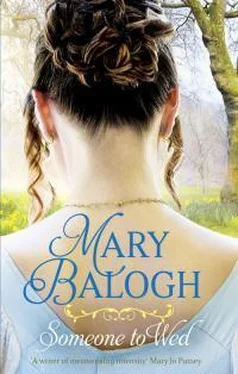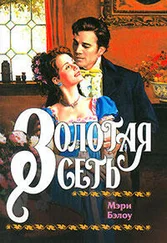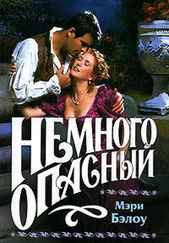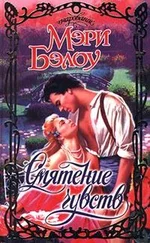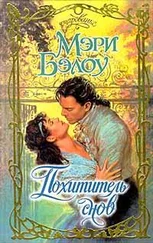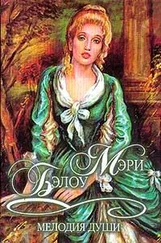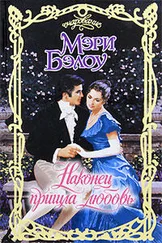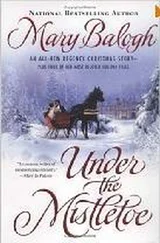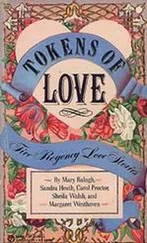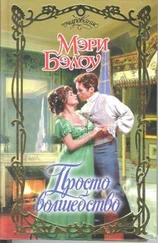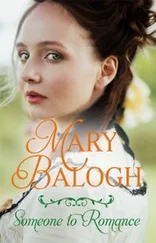“You were very fond of them,” he said.
He was talking about her uncle and aunt again. She knew it was not just idle chatter. She knew he was trying to get to know her. He would probably want her to get to know him too. She had not thought of that in advance. She had somehow expected to choose a man almost upon instinct alone, with just a little research and very little personal acquaintance, make her offer, be accepted, marry him, and … And what? Live happily ever after? No, she was not that foolish. She just wanted to be married. All the way married. She wanted the physical things, and she wanted children. Plural, very definitely plural. She had not given much if any thought to getting to know her chosen husband, to allowing him to get to know her. It was almost as though she had expected their lives as a couple to begin on the day they met. No outside world. No histories. No baggage.
It would not be like that. Not with him, anyway. I will not marry you for your money alone, Miss Heyden. He had not ruled out marrying her. He had not even said that he would not marry her for her money. But he would not marry her just for the money. Which really meant that he would not marry her at all.
Do you value yourself so little …
“They were my life and my salvation,” she told him. “I knew we would lose my uncle. He was eighty-four years old, and his heart was weak and his breathing was sometimes labored. He did not take to his bed as often as many men in his condition would have done, and he never complained. He was still more active than perhaps he ought to have been and his mind was still sharp. But he had slowed down considerably, and we were all aware that the end was approaching. It would have been dreadfully sad, and I would have mourned him for a long time. But it would have been … What is the word? Acceptable? Everyone in the natural course of things loses elderly relatives. No one lives forever. But Aunt Megan’s death just before his was so sudden, so totally unexpected that—” She swallowed but could not go on. She did not need to, however. Her meaning was clear, and his grip on her hand tightened in obvious sympathy.
“I beg your pardon,” she said. “I am not the only person who has ever lost loved ones. You too have lost people you loved.”
“My father,” he said. “He frequently exasperated me. He lived his life upon far different principles from my own. He lived to enjoy life, and enjoy it he did. Perhaps it was not until after his death that I realized just how much I had loved him—and how much he had loved me.”
By unspoken consent they began to climb the hill again, picking their way among the daffodils so as not to crush any of them.
“Your aunt was elderly too?” he asked.
“Oh, not at all,” she said. “She was fifty-four. She was thirty-five when she took me to call upon the man who would become my uncle at his home in London. She went there to ask if he would help her find employment. She had once worked for him as companion to his first wife, who was an invalid for many years. He married Aunt Megan a week later and we went to live with him. They were happy. They shared their happiness with me and adopted me. I was the most blessed of mortals. I still am. He left me a vast fortune, Lord Riverdale. You will be entitled to know how vast, of course, if you decide to take matters further between us.”
She was aware that she had left more questions unanswered than explained. He had every right, she supposed, to ask those questions, but she hoped he would not. They were standing on the bridge, looking down at the gurgling water, and she slid her hand free when she realized it was still clasped in his. She drew the edges of her shawl together. It was chillier here in the shade of the trees.
“There is something soothing about the sound of water, is there not?” he said, and she knew he was not going to ask any of those questions. “And the sight of it.”
“Yes, there is,” she said. “I love coming here even when the daffodils are not in bloom. There is the illusion of seclusion and serenity here. Or perhaps it is not an illusion. Perhaps it is real. What happened to your young cousin who lost his title to you last year?”
“Harry?” He turned his head to look at her briefly. “He is out in the Peninsula fighting the armies of Napoleon Bonaparte as a lieutenant with the 95th Foot Regiment, also known as the Rifles. He claims to be enjoying the experience enormously, though he has been wounded a few times and is a constant source of worry to his mother and sisters. I would have expected no less of the boy, however. He was always full of energy and enthusiasm for life and is not the type to whine or grow bitter over circumstances that are beyond his control. Nevertheless, he must have had the stuffing knocked out of him. The changes to my life are nothing compared with the changes to his—plus the knowledge that his father deceived his mother in the worst possible way and callously caused his illegitimacy and his sisters’. I feel guilty about the outcome, as though I am somehow partly to blame for their misery. I would have refused the title if I could. Unfortunately, it was not possible.”
“And his sisters?” she asked.
“Camille and Abigail,” he told her. “They went to live with their maternal grandmother in Bath. Camille chose to teach at the orphanage where Anna grew up—their father’s only legitimate child, now the Duchess of Netherby, that is—and she married the art teacher last summer. He is also a portrait painter of some renown and came into an unexpected inheritance last year. The two of them are now living in a large manor in the hills above Bath, running a retreat house that offers quiet study time and classes in a wide range of subjects, from dancing to drama to painting to writing. It offers guest lectures and concerts and plays. Sometimes the children from the orphanage go there for picnics and parties. They have two adopted children, and one of their own is imminent. Camille has been a huge surprise to us all. There was no lady more proper or high in the instep—or, frankly, more hard to like—than she was as Lady Camille Westcott.”
“The disaster that happened to her, then, was actually a blessing?” she said.
“I do believe it was,” he agreed, “though it seems almost heartless to say so. Her mother at first went to live with her brother, who is a clergyman in Dorsetshire, but now she has been persuaded to move back to her old home in Hampshire with Abigail, the younger sister. Hinsford Manor actually belongs to Anna, and it is at her request that the ladies have moved there. They are all still trying to come to terms with the changes in their lives, I suspect, as are the rest of the members of the Westcott family. Sometimes I feel very helpless.”
“But are you not doing the very same thing?” she asked. “Are you not indeed one of the central figures in the turmoil?”
“The one who would appear to have benefited most,” he said. “I often fear Harry and his mother and sisters must hate me, though to be fair they have never shown any open resentment.”
“Does the rest of the family support them?” she asked. “Or have they been shunned?”
“Oh, never that,” he said. “The Westcotts have rallied around—the dowager countess, my father’s first cousin, and her three daughters and their families. Then there is the Duke of Netherby, whose father made a second marriage with one of the Westcott daughters. The present Netherby was Harry’s guardian until his twenty-first birthday recently. It was he who purchased Harry’s commission. And there are my mother and my sister. At first, however, Cousin Viola—the former countess—and her daughters and Harry were not willing to accept any sort of support from the Westcott family. Cousin Viola felt strongly the fact that her marriage had never been valid and that therefore she was in no way related to any of us. She even calls herself by her maiden name of Kingsley. And Camille and Abigail felt their illegitimacy keenly and chose to lick their wounds in private for a while. There will, by the way, be a written test on all these family connections when we return to the house.”
Читать дальше
